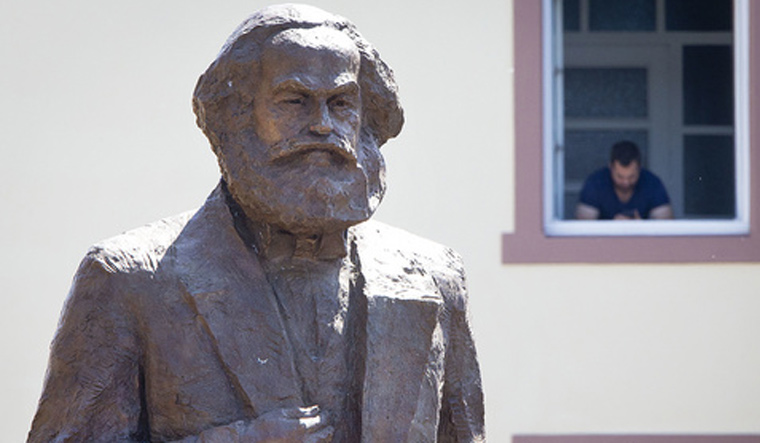"There is a Nobel Prize waiting for the economist who resurrects Marx and puts it all together into a coherent model," says a character in a 1997 essay of The New Yorker, titled 'The Return of Karl Marx'.
With two devastating World Wars, the Asian financial crisis of 1997, continued exploitation of factory workers to service retail giants, or even the global credit crisis of 2008, the dangers of capitalism have been vindicated many times over. The German philosopher, political theorist and revolutionary must have had many 'I-told-you-so' moments in his grave. To further discuss Marx's relevance in the 21st century, especially in the year of his 200th birth anniversary, Patna will host a major international conference, "Karl Marx—Life, Ideas, Influence: A Critical Examination on the Bicentenary", from June 16 to 20.
Asian Development Research Institute (ADRI), a Patna-based think tank working on social sciences and literacy in Jharkhand and Bihar, is bringing in scholars from more than 20 countries to deliberate on Marx's critique of the political economy in the five-day conference. Gayatri Spivak from Columbia University, Alessandra Mezzadri from SOAS, London, Barbara Harriss-White from Oxford University, British-Canadian-Israeli economist Samuel Hollander, Seongjin Jeong of Gyeongsang National University in South Korea, and Julio Boltvinik from Mexico City are some of the big names attending the conference. Scholars and thinkers will assemble to understand Marx's abiding presence in the realm of "Ideas" and "Praxis", which includes discussing his writings on historical/dialectical materialism, theory of class and social formation, his influence in feminism, philosophical issues, arts and literature along with Marxism in the Indian context, in Russia, Latin America and throughout Asia.
Many have pointed out that Patna is an odd choice for hosting a gathering of A-list Marxists from around the world. But is to be borne is mind that Bihar is no stranger to struggle against social oppression and grappling with issues of minimum wages. It has had its own share of peasant uprisings in modern history, including the Santhal Rebellion of 1855-56 (supposed to be India's first peasant movement), the Munda Uprising of 1899-1901 and the Indigo Revolts of the nineteenth century which culminated in the Champaran Satyagraha of 1917.
The widespread influence and vitality of the communist movement has considerably dwindled in India. Is there room for further updation of Marxian philosophy to address the current social and economic fragmentation in India? Can it again emerge as a potent political force and intellectual current to address the rising intolerance, ultra-nationalism and deficit of free speech?
It will be worthwhile to see if the conference can throw up contemporary Marxists with a renewed Manifesto.


